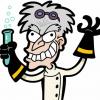Posted 02 June 2005 - 11:13 PM
This is enough to make me stay away from prolonged use:
1: Reprod Toxicol. 2004 May;18(3):423-30. Related Articles, Links
Testicular toxicity induced in dogs by nefiracetam, a neutrotransmission enhancer.
Shimomura K, Shimada M, Hagiwara M, Harada S, Kato M, Furuhama K.
Drug Safety Research Laboratory, Daiichi Pharmaceutical Co, Ltd, 1-16-13 Kitakasai, Edogawa-ku, Tokyo 134-8630, Japan. shimop7x@daiichipharm.co.jp
To investigate mechanisms of the testicular toxicity of nefiracetam and to find sensitive parameters to predict the toxicity, male beagle dogs were orally administered 180 or 300 mg/kg per day of the drug once and for 1 and 4 weeks. Time-course changes in serum and/or testicular hormone levels and semen parameters, and testicular morphology were examined. The testicular testosterone level was decreased 4 h after single administration of nefiracetam at 300 mg/kg per day, but the progesterone level showed no change at that time. The serum testosterone level was decreased after single, 1-week or 2-week treatment. In contrast, the serum estradiol level was increased from 1- to 4-week treatment. No changes in serum LH, FSH and inhibin B levels were observed throughout the experimental period. Decreased sperm motility and increased number of malformed sperms were first observed in semen after 4-week treatment. Histopathological examination of the testis revealed moderate and severe seminiferous atrophy with multinucleated giant cell formation at 180 and 300 mg/kg per day, respectively, after 4-week treatment, but not 1-week treatment. These results show that nefiracetam decreases testicular testosterone level in dogs following single oral administration of a high dose, and induces severe morphologic changes after 4-week treatment. This reduction is shown to be a sensitive parameter to detect the toxicity, and is suggested to be induced by the impaired conversion of progesterone to testosterone in Leydig cells.
PMID: 15082078 [PubMed - indexed for MEDLINE]
1: Toxicol Lett. 2003 Aug 28;143(3):307-15. Related Articles, Links
Investigation of testicular toxicity of nefiracetam, a neurotransmission enhancer, in rats.
Shimada M, Shikanai Y, Shimomura K, Harada S, Watanabe G, Taya K, Kato M, Furuhama K.
Drug Safety Research Laboratory, Daiichi Pharmaceutical Co. Ltd., Tokyo, Japan.
Testicular toxicity of nefiracetam (N-(2,6-dimethylphenyl)-2-(2-oxo-1-pyrrolidinyl) acetamide), a neurotransmission enhancer, was investigated in male Slc:SD rats. Nefiracetam was orally administered daily at 1500 mg/kg for 4 weeks, and the animals were killed sequentially during the course of administration to determine testicular histopathological changes and sperm head counts (SHC), and hormonal changes. Retention of step 19 spermatids, sporadic degeneration of pachytene spermatocytes and step 7 spermatids in the stage VII seminiferous tubules, and a decrease in SHC were seen as earliest changes after 1 week of administration. These changes gradually advanced up to atrophy of seminiferous tubules with multinucleated-giant-cell formation after 4-week administration. Serum and testicular testosterone levels were decreased, but recovered to the control levels within a day following a single administration, and the decreases were repeated after 1-week administration. These results suggest that nefiracetam-induced earliest changes could be caused by the decreased level of testicular testosterone.
PMID: 12849691 [PubMed - indexed for MEDLINE]
















































